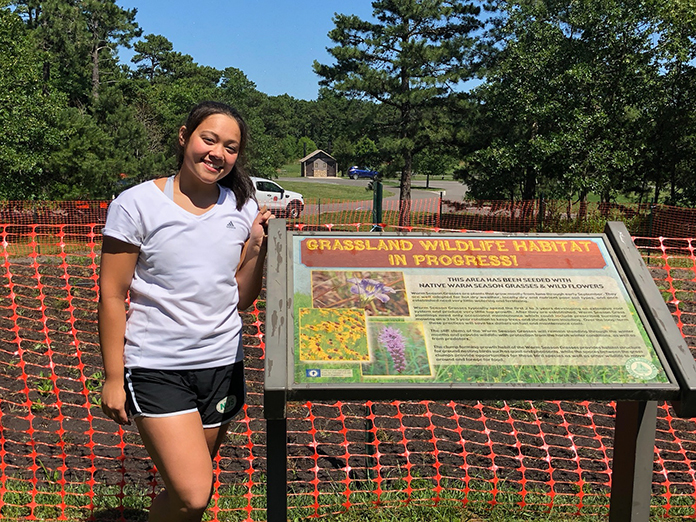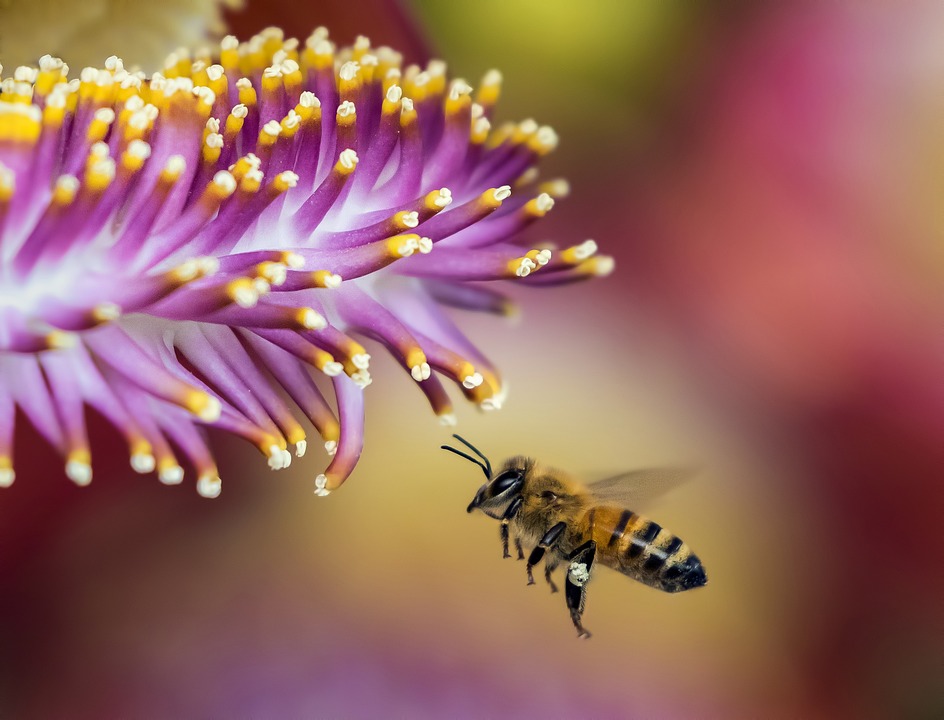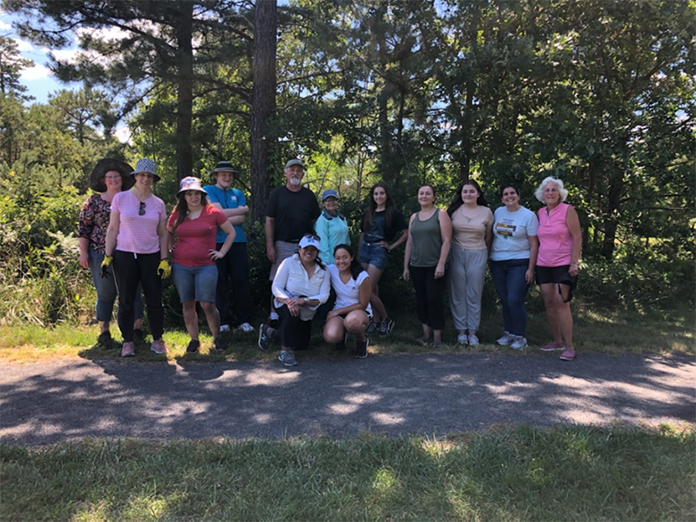
BEACHWOOD – As the world population of bees continues to falter, High School North junior Kaitlyn Culbert is taking on the maxim of “think globally, act locally” by supporting hives at Jakes Branch Park and beyond.

The health of honeybees is tied to the health of everyone. Environmentalists have explained that without pollination, crops don’t grow. This has led to more awareness of the dropping numbers of bees. People have stopped using pesticides that affect them, for example.
The Journal of Research, High School publishes academic articles written by students, and they published Culbert’s findings in March. In an essay she wrote for The Foundation for the Preservation of Honey Bees, she quoted Albert Einstein as saying “If the bee disappeared off the face of the Earth, man would only have four years left to live.”
The U.S. Department of Agriculture’s National Agricultural Statistics Service performs surveys about colony loss in the honey industry. The results are published in an annual Honey Bee Colonies report.

This problem made the news a few years ago, but is this still an ongoing issue?
“We still are in trouble in the state, unfortunately,” Culbert said. Some areas are down by 50% of where they once were.
Throughout spring, she had a 2,500-square-foot pollinator garden installed at Jake’s Branch County Park. It’s located on the plant discovery trail. Another is outside the nature center. Visitors can see it from inside.
Through a grant from the Xerces Society of Invertebrate Conservation, she was awarded 600 native plant plugs from Pinelands Nursery & Supply. The 4H Busy Bees, 4H Ocean County Teens, and the Ocean County Master Gardeners installed them.
She’s the Student Leader of the 4-H Busy Bees Beekeeping Club. As a part of her role as ambassador, she’s been spreading awareness on social media. This involves teaching kids to feel safe around the insects. Her Instagram is KT.Bees and she shares videos of her beekeeping at youtube.com/channel/UC1VTjvnWwdJQMSHG2H18FpA
One condition she is studying is colony collapse disorder. According to the Environmental Protection Agency, this is when the majority of worker bees abandon the queen and the hive. It was unknown where they were going. If they were found dead around the hive, then a necropsy could determine the cause. But since they are nowhere to be found, the root of the problem remains a mystery.

Researchers have several theories as to what causes this, and one of them is the varroa mite. This parasite will weaken bees and causes all sorts of problems for individuals and for the hive.
Culbert said she is reaching out to beekeepers to find out what issues they’ve been having. What worked? What didn’t?
In October of 2020, a laboratory study showed that a mist diffusion of essential oils could be used as a miticide. In October of 2021, a field study was done to put it to the test. She said that thyme, oregano, and rosemary were the most effective.

What’s next in her research? She said she’s in the process of using predictive analysis to see if there are certain factors that contribute to colony collapse.






